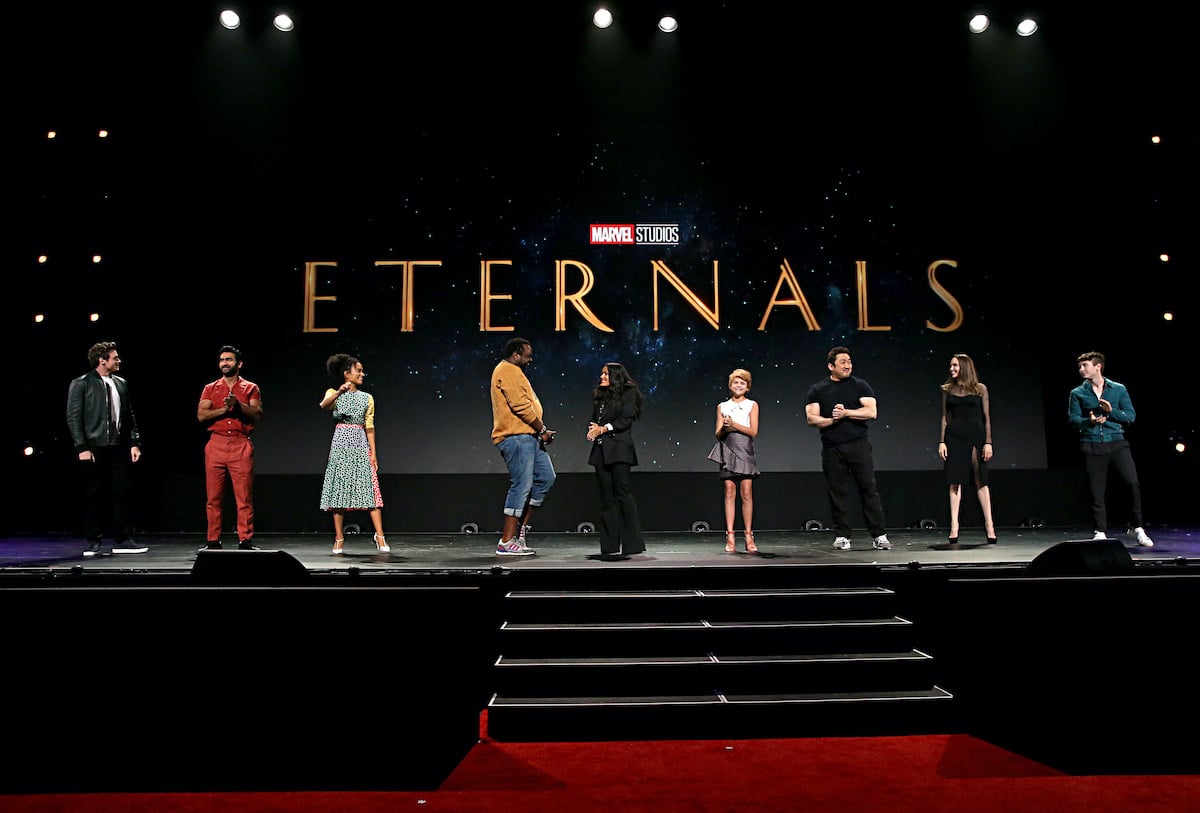Why ‘Eternals’ Is the Most Important MCU Movie Marvel Released in 2021
After more than a decade, Avengers: Endgame — and, to a lesser extent, Spider-Man: Far From Home — closed the book on Marvel‘s “Infinity saga.” Of course, the Marvel Cinematic Universe (MCU) always planned to continue with a new epic tale and some new heroes. The coronavirus (COVID-19) pandemic, of course, delayed those plans. But Marvel released four new films in 2021. Here’s why Eternals is the most important entry in the MCU’s Phase 4 so far.

Why ‘Spider-Man: No Way Home’ isn’t Phase 4’s most vital entry to date
Let’s clarify one thing right away. From a commercial and critical standpoint, the breakout installment of Phase 4 is crystal clear: it’s Spider-Man: No Way Home. The Jon Watts-directed film is the first to bring the Marvel multiverse to the big screen. And it singlehandedly opened the doors for just about any pre-MCU movies based on Marvel characters to have free rein to waltz right into Kevin Feige’s playground. Just ask Patrick Stewart.
But there’s something about Spider-Man: No Way Home many critics and fans are missing. The movie serves as a victory lap for Sony and Marvel’s Spider-Man partnership. As such, it taps into the same callback-heavy, it’s-all-leading-to-this energy as Avengers: Endgame. But there’s little novel about this approach. The movie isn’t even burdened with bringing the multiverse into the MCU, just building on what Loki spent six hours easing fans into.
‘Eternals,’ on the other hand, extends the MCU into new cosmic depths
While fans might have enjoyed Spider-Man: No Way Home, that film ends with Tom Holland’s Peter Parker essentially divorced from the larger MCU. By contrast, Eternals promises to have larger implications for the franchise as a whole. In fact, it digs deeper into the cosmic realm than the Thor series, the Guardians of the Galaxy films, and even Captain Marvel. The formal introduction of the Celestials affirms that nothing is truly off-limits.
At this point, it feels like only a matter of time until the wildest storylines from Marvel Comics make their way into the MCU. The scope of storytelling Chloé Zhao brings to the franchise with Eternals is fresh territory. It opens up yet another new avenue for the MCU’s future, bringing the comics’ space deities literally to Earth by the time the credits roll. What implications will this have on the MCU, and how will this story connect to the shattering of the multiverse?
How Marvel might have written the MCU into a corner with ‘Eternals’
So Marvel Studios released a bold, ambitious space opera from an Academy Award-winning director in 2021. The studio just can’t seem to stop winning, right? Well, the numbers paint a very different picture. Of the four Phase 4 movies Marvel released so far, Eternals was by far the least successful domestically. In fact, the movie is the second lowest-grossing MCU film, beating 2008’s The Incredible Hulk by just $30 million according to The-Numbers.com.
Although the end credits promise “the Eternals will return,” it’s unlikely at this point a direct sequel will happen anytime soon. The collective shrug audiences and critics offered Eternals could even discourage Marvel from taking such chances. By contrast, Spider-Man: No Way Home‘s $1.9 billion theatrical haul — according to Box Office Mojo — will certainly influence Marvel’s top brass. Here’s hoping the MCU doesn’t back down from whatever Zhao set up.


